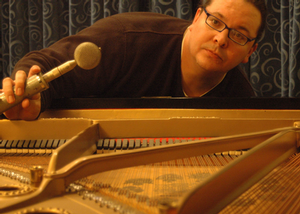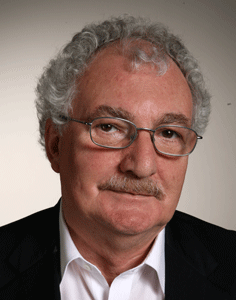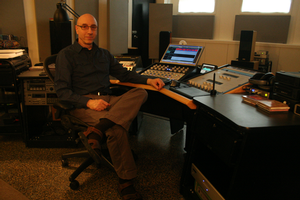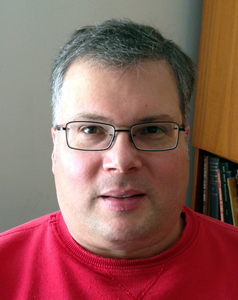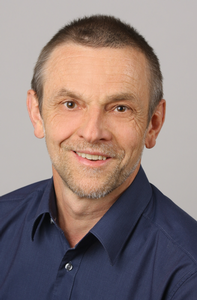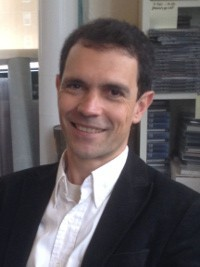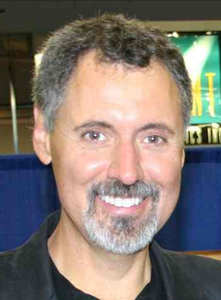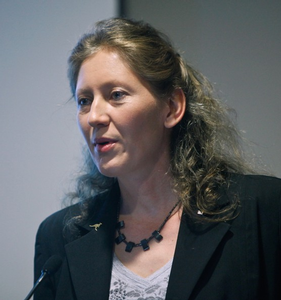
AES New York 2013
Archiving and Restoration Track Event Details
Thursday, October 17, 9:00 am — 10:30 am (Room 1E13)
Tutorial: T1 - FXpertise: Compression
Presenter:Alex Case, University of Massachusetts Lowell - Lowell, MA, USA
Abstract:
Compressors were invented to control dynamic range. The next day, engineers started doing so much more—increasing loudness, improving intelligibility, adding distortion, extracting ambience, and, most importantly, reshaping timbre. This diversity of signal processing possibilities is realized only indirectly, by choosing the right compressor for the job and coaxing the parameters of ratio, threshold, attack, and release into place. Learn when to reach for compression, know a good starting place for compressor settings, and advance your understanding of what to listen for and which way to tweak.
Thursday, October 17, 11:00 am — 12:00 pm (Room 1E04)
TC Meeting: Archiving, Restoration, and Digital Libraries
Abstract:
Technical Committee meeting on Archiving, Restoration, and Digital Libraries
Friday, October 18, 9:00 am — 10:30 am (Room 1E13)
Tutorial: T6 - FXpertise: Equalization
Presenter:Alex Case, University of Massachusetts Lowell - Lowell, MA, USA
Abstract:
Equalization might be the most intuitive of effects. We’ve had tone controls since we were kids, after all. Advanced applications of equalization are born from a deep understanding of EQ parameters and technologies, plus broad knowledge of the spectral properties and signatures of the most common pop and rock instruments. In this tutorial, Alex Case shares his approach for applying EQ and strategies for its use: fixing frequency problems, fitting the spectral pieces together, enhancing flattering features, and more.
Friday, October 18, 9:00 am — 10:30 am (Room 1E10)
Workshop: W10 - National Recording Preservation Plan: Best Practices for Creating and Preserving Born-Digital Audio Files
Chair:Konrad Strauss, Indiana University - Bloomington, IN, USA
Panelists:
Chris Lacinak, AVPreserve - New York, NY, USA
George Massenburg, Schulich School of Music, McGill University - Montreal, Quebec, Canada
Charles Van Winkle, Adobe - Minneapolis, MN, USA
Abstract:
In December of 2012 the Library of Congress released the National Recording Preservation Plan. The result of nearly 10 years of work by the Library and the National Recording Preservation Board, the Plan outlines a series of recommendations for implementing a national recorded sound preservation plan. This workshop will explore recommendations 2.7: Best Practices for Creating and Preserving Born-Digital Audio Files, and 2.6: Tools to Support Preservation throughout the Content Life Cycle; and will focus on best practices for the creation of born-digital recordings and strategies for short-term backup and long-term preservation.
 | This session is presented in association with the AES Technical Committee on Archiving Restoration and Digital Libraries |
Friday, October 18, 10:45 am — 11:45 am (Room 1E10)
Tutorial: T8 - National Recording Preservation Plan: Audio System Performance Testing
Presenters:Chris Lacinak, AVPreserve - New York, NY, USA
Ian Dennis, Prism Sound
Rob Friederich, Library of Congress
Abstract:
Recommendation 2.4 from the Library of Congress National Recording Preservation Plan published this year states that we need improved tools and metrics for system performance testing. This session will discuss work coming out of the Federal Agencies Digitization Guidelines Initiative on performance testing of audio digitization systems tasked with preservation and archiving. Specifically this session will discuss the issues of Interstitial Errors, a term used to describe momentary artifacts caused by failure in a DAW’s writing of data to a storage medium, and Analog-to-Digital Converter performance testing. The latter of these was just accepted as a formal standards project by SC-02-01 at the last AES and addresses both development of a test method and performance criteria for converters used in preservation systems.
 | This session is presented in association with the AES Technical Committee on Archiving Restoration and Digital Libraries |
Friday, October 18, 11:45 am — 1:15 pm (Room 1E10)
Tutorial: T9 - National Recording Preservation Plan: Preservation Planning
Presenters:Chris Lacinak, AVPreserve - New York, NY, USA
David Ackerman, Harvard University - Cambridge, MA, USA
Matt Barton, Library of Congress
Mark Hood, Indiana University - Bloomington, IN, USA
Abstract:
Recommendation 2.2 from the Library of Congress National Recording Preservation Plan published this year states the need to devise means to assist organizations in conducting comprehensive appraisals of audio collections with the goal of establishing priorities for preservation. This session will discuss recent developments toward these ends, focusing on efforts coming out of Indiana University, Library of Congress, AudioVisual Preservation Solutions, and Harvard University. Software, including open-source freely available applications, and associated workflows will be demonstrated and discussed. Case studies will be used to provide concrete examples of project logistics, details and outcomes, providing tangible, practical information to organizations in need of obtaining the information necessary to perform prioritization, planning, budgeting, and more around the preservation and access of their audio collections.
 | This session is presented in association with the AES Technical Committee on Archiving Restoration and Digital Libraries |
Friday, October 18, 1:00 pm — 1:45 pm (Room 1E14)
Special Event: A Tribute to Ray Dolby
Presenter:Ioan Allen, Dolby Laboratories Inc. - San Francisco, CA, USA
Abstract:
Ray Dolby died last month at the age of 80. In this special presentation, Ioan Allen will not only cover a few of the highlights of Ray's distinguished career but will also spend more time reminiscing on what it was like to work for over four decades with this iconic figure.
Friday, October 18, 2:00 pm — 3:30 pm (Room 1E14)
Workshop: W14 - The Timeline Never Lies: Audio Engineers Aiding Forensic Investigators in Cases of Suspected Music Piracy
Chair:Martha de Francisco, McGill University - Montreal, QC, Canada
Panelists:
Cynthia Arato, Shapiro, Arato & Isserles - New York, NY, USA
Joe Bennett, Bath Spa University - Bath, UK
Thomas Owen, Owen Forensic Services - Colonia, NJ, USA
Abstract:
Technological evolution in the music world has lead to a heightened threat of illegal copying of music performances. Based upon their professional practice audio engineers are being consulted by repertoire owners and their lawyers in cases of suspected music piracy. The expert witnesses develop systematic approaches to obtaining proof of authenticity of the music material based on their professional expertise in analytical listening of the recorded sound and in studio production tools and techniques as well as on their ability to evaluate minute details of the music performance. Their findings may lead the courts to uncover dubious practices of falsification and subsequent release of copyrighted music files.
A musicologist, a recording engineer/producer, a forensic audio specialist, and a litigation attorney present and discuss aspects of forensic audio and intellectual property.
 | This session is presented in association with the AES Technical Committee on Audio Forensics |
Saturday, October 19, 9:00 am — 10:30 am (Room 1E13)
Tutorial: T12 - FXpertise: Distortion
Presenter:Alex Case, University of Massachusetts Lowell - Lowell, MA, USA
Abstract:
Distortion can be good, or bad. With the right touch, it can lift a track up out of a crowded arrangement and add excitement to a performance. Yet too much distortion renders the track too messy, too murky to be enjoyed. Accidental distortion is a certain sign that the production is unprofessional. Amps, stomp boxes, tubes, transformers, tape machines, the plug-ins that emulate them, and the plug-ins that create wholly new forms of distortion all offer a rich palette of possibilities. Audio engineers must choose the right tool for the job and then tailor the distortion to the music. This advanced tutorial takes a close look at distortion, detailing the technical goings-on when things break-up, and defining the production potential of this always-tempting effect.
Saturday, October 19, 12:15 pm — 1:15 pm (Room 1E11)
Historical: Restoring Peggy Lee’s Capitol Records Album “Jump for Joy”
Presenter:Alan Silverman, Arf! Mastering - New York, NY, USA; NYU|Steinhardt Dept.of Music Technology
Abstract:
“Jump for Joy,” featuring Peggy Lee and arranged by Nelson Riddle, was one of the first records released by Capitol as a stereo LP. The year was 1959, the year the label first made stereo LPs available to the public, but this seminal album was never released in stereo on CD, only in mono. An assignment to master the original stereo mixes for digital release led to the discovery of a 54-year old audio mystery. Had something gone awry at the original stereo mix date? This special event uses photos and high-resolution transfers of original session material to detail a surprising finding and the steps that were taken to reach back in time to restore the album for today’s audience as it was intended to heard.
Saturday, October 19, 3:00 pm — 5:00 pm (Room 1E13)
Workshop: W19 - "Help! I Have a Tape Recorder!"—Restoration and Rebuilding Analog Tape Machines
Chair:Noah Simon, New York University - New York, NY, USA
Panelists:
John French, JRF Magnetic Sciences Inc - Greendell, NJ, USA
Bob Shuster, Shuster Sound - Smithtown, NY USA
Daniel Zellman, Zeltec Service Labs - New York, NY, USA; Zeltec Research & Development
Abstract:
A new generation of engineers, musicians, and audiophiles are discovering how the analog recorders from the “good old days” are helping them get a better sound or get that “analog sound” into their recordings. At the same time at the other end, archivists, preservationists, remastering engineers, and high end audiophiles need to know what’s involved in taking care of these machines. This workshop will discuss the various options for these folks when they look for purchasing, maintaining, restoring, and using these recorders. During the workshop discussion, we hope to show examples of tape recorder repairs and restoration and have a running Q&A session.
 | This session is presented in association with the AES Technical Committee on Archiving Restoration and Digital Libraries |
Saturday, October 19, 5:00 pm — 7:00 pm (Room 1E09)
Historical: The 35mm Album Master Fad
Presenter:Thomas Fine, (sole proprietor of private studio) - Brewster, NY, USA
Abstract:
In the late 1950s and early 1960s, a new market emerged for ultra-high fidelity recordings. Once cutting and playback of the stereo LP were brought up to high quality levels, buyers of this new super-realistic format wanted ever more "absolute" sound quality. The notion emerged, first with Everest Records, a small independent record label in Queens, to use 35mm magnetic film as the recording and mastering medium. 35mm had distinct advantages over tape formulations and machines of that time—lower noise floor, less wow and flutter, higher absolute levels before saturation, almost no crosstalk or print-through, etc. Everest Records made a splash with the first 35mm LP masters not connected to motion-picture soundtracks but quickly faltered as a business. The unique set of recording equipment and the Everest studio remained intact and was used to make commercially successful 35mm records for Mercury, Command, Cameo-Parkway, and Project 3. The fad faded by the mid-60s as tape machines and tape formulations improved, and the high cost of working with 35mm magnetic film became unsustainable. The original Everest equipment survived to be used in the Mercury Living Presence remasters for CD. Just recently, the original Everest 35mm recordings have been reissued in new high-resolution digital remasters. This presentation will trace the history of 35mm magnetic recording, the brief but high-profile fad of 35mm-based LPs, and the after-life of those original recordings. We will also look at the unique set of hardware used to make the vast majority of the 35mm LPs. The presentation will be augmented with plenty of audio examples from the original recordings.
Sunday, October 20, 9:00 am — 11:00 am (Room 1E08)
Tutorial: T18 - Small, Loud-Speakers: Taking Physics to the Limit
Presenter:Wolfgang Klippel, Klippel GmbH - Dresden, Germany
Abstract:
This tutorial plays on the challenge of engineering small loudspeakers that can also be loud, have high efficiency, and low distortion. While the basic construction and principle of the moving coil loudspeaker has remained unchanged for a century, our understanding of its operation and limitations has increased very considerably. Modern signal processing techniques, coupled with careful design of the magnet, voice coil, and suspension can be employed to create small drive units that have an optimum trade-off between the crucial design factors. An understanding of the perceptual effects that arise from these design trade-offs helps to bring about loudspeakers that not only measure well but sound good. This is particularly important as compact devices such as mobile phones demand more and more quality from tiny loudspeakers in minimal enclosures.
Sunday, October 20, 9:00 am — 10:00 am (Room 1E09)
Tutorial: T19 - National Recording Preservation Plan: Audio Preservation/Archiving: New Technologies and Access Issues
Presenters:Matt Barton, Library of Congress
Brad McCoy, Library of Congress - Charlottesville, VA, USA
Gerald Seligman, National Recording Preservation Foundation - New York, NY, USA
Abstract:
This presentation gives an overview of the Library of Congress National Recording Preservation Plan (NRPP) published in December 2012, with a focus on the portions that particularly include and involve AES. Brad McCoy will focus on Sections 1.7 (New technologies for Audio Preservation: Encourage scientific and technical research leading to the development of new technologies to recover, reformat, and preserve audio recording media) and 1.8 (Documentation of Legacy Technologies: Research, collect, document, and preserve information on legacy record practices and technologies). Matthew Barton will discuss recommendations 3.1, 3.2 and 3.3, which deal with public and educational access, using a range of radio broadcasts, interviews, field recordings, and the recording formats and sonic issues particular to each one. The proposed national discography and national directory of sound recording collections will be discussed in this context, as will cataloging issues. This presentation will include audio examples from the Library of Congress collections to illustrate points.
Sunday, October 20, 9:00 am — 10:30 am (Room 1E11)
Workshop: W24 - DSD vs. DXD: Extreme DSD and PCM Resolutions Compared
Chair:Dominique Brulhart, Merging Technologies
Panelists:
Morten Lindberg, 2L (Lindberg Lyd AS) - Oslo, Norway
John Newton, Soundmirror, Inc. - Jamaica Plain, MA, USA
Abstract:
With the recent release of 11.2 MHz Quad-DSD production tools, more than a decade of DSD and DXD productions and the rapidly growing availability of DSD and DXD material available for download on the market, there is a constant debate in both the professional and the audiophile sector about the difference between DSD and PCM and ultimately which one “sounds better.” This panel would like offering the opportunity to two known specialists of these formats, John Newton from Soundmirror and Morten Lindberg from 2L, to present some of their recordings and discuss about their experience making productions in DSD and DXD. Recent recordings in 11.2 MHz DSD, DSD, and DXD will be presented and recording, editing, mixing, and mastering techniques and considerations using DSD and DXD will be discussed and compared.
Sunday, October 20, 10:00 am — 11:00 am (Room 1E09)
Tutorial: T20 - National Recording Preservation Plan: Audio Preservation/Archiving: Documentation of Preservation Techniques for Archival Formats
Presenters:Mark Hood, Indiana University - Bloomington, IN, USA
Brad McCoy, Library of Congress - Charlottesville, VA, USA
Marcos Sueiro Bal, WNYC / New York Public Radio - New York, NY, USA; Masterdisk - New York, NY, USA
Abstract:
The transmission of playback techniques to younger practitioners has become increasingly difficult in the often isolated archive environments. This is addressed in Recommendation 1.8 of the NRPP: “Documentation of Legacy Technologies: Research, collect, document, and preserve information on legacy recording practices and technologies,” which specifically recommends to “initiate a program to videotape interviews and demonstrations by senior audio engineers.” The Association of Recorded Sound Collections (ARSC) Technical Committee will introduce its efforts in this regard, initiated through support from the National Recording Preservation Plan and others.
Sunday, October 20, 11:00 am — 1:00 pm (Room 1E15/16)
Special Event: The State of Mastering – 2013
Moderator:Bob Ludwig, Gateway Mastering Studios, Inc. - Portland, ME, USA
Presenters:
Greg Calbi, Sterling Sound - New York, NY, USA
Darcy Proper, Wisseloord Studios - Hilversum, The Netherlands
Douglas Sax, The Mastering Lab - Ojai, CA, USA
Tim Young, Metropolis Mastering - London, UK
Abstract:
Ten years ago top mastering studios generally mastered and created final production masters for only the Compact Disc. Now we commonly create production masters for CDs, Downloads, files for streaming, special "Mastered for iTunes" downloads, and high resolution files for vinyl disk cutting, HDtracks, and Pure Audio Blu-ray masters.
Our Platinum Panelists will talk about the ramifications of State-of-Mastering in 2013 and what the future may hold. We will include some special sound demonstrations.
Sunday, October 20, 11:00 am — 12:00 pm (Room 1E09)
Tutorial: T21 - National Recording Preservation Plan: Audio Preservation/Archiving: Disc Playback Stylus Selection
Presenter:Marcos Sueiro Bal, WNYC / New York Public Radio - New York, NY, USA; Masterdisk - New York, NY, USA
Abstract:
Draft document AES-16id-2010 on stylus selection states that stylus selection “will always be subjective,” but there may be mountains of data waiting to help us with our selection. As a proof of concept this tutorial will attempt to establish whether there is a correlation between playback stylus size and year of recording using data from a recent project transferring over1500 lacquer disc sides from radio station WNYC. This kind of research aligns well with the NRPP’s recommendation to develop “scientific and technical research leading to the development of new technologies to recover, reformat, and preserve audio recording media."
Sunday, October 20, 12:00 pm — 1:00 pm (Room 1E09)
Tutorial: T22 - The Vinyl Frontier
Presenters:Chris Mara, Welcome To 1979 - Nashville, TN, USA
Alex DeTurk, Masterdisk - New York, NY, USA
Paul Gold, Salt Mastering - New York, NY, USA
Cameron Henry, Welcome To 1979 - Nashville, TN, USA
Scott Hull, Masterdisk - New York, NY, USA
Abstract:
There is little doubt that vinyl records are in the midst of a resurgence. First hand knowledge of the vinyl mastering process is in high demand, yet short supply. This session is dedicated to discuss the truths of vinyl mastering, lacquer cutting, and vinyl production while also dispelling myths.
Sunday, October 20, 12:30 pm — 1:30 pm (Room 1E07)
Special Event: Lunchtime Keynote: Studio of the Future: 2020–2050
Presenter:John La Grou, Millennia Music & Media Systems - Sierra Nevada, California, USA; POW-R Consortium
Abstract:
A brief look at the evolution of audio electronics, a theory of innovation, and a sweeping vision for the next forty years of audio production technology. Informed by the growth theories of Moore, Cray, and Kurzweil, we project the next forty years of professional audio products, production techniques, and delivery formats.
Sunday, October 20, 1:00 pm — 2:00 pm (Room 1E14)
Historical: A Contribution to the History of Field Tape Recording, 1939-1940
Presenter:Nadja Wallaszkovits, Phonogrammarchiv, Austrian Academy of Science - Vienna, Austria
Abstract:
Digital Transfer of The Armando Leça Folk Music Collection
Nadja Wallaszkovits will discuss the restoration, transfer, and digitization of a unique collection of folk music recorded during 1939-1940 in the rural areas and mountain villages of Portugal by the folklorist Armando Leça, in collaboration with National Radio (Emissora Nacional). Her presentation will open with a short introduction of this important field research project, which resulted in the first known collection of recordings documenting rural musical practices from nearly all regions of Portugal. Thereafter, she will present a historical overview of early magnetic tape developments and the birth of audio tape recorder technology, focusing on the characteristics of the individual tape machine used by Armando Leça. The problems of carrier handling, restoration, and transfer of these valuable original tapes will be discussed, along with the judicial use of signal enhancement during the playback process.
Sunday, October 20, 2:30 pm — 4:00 pm (Room 1E09)
Tutorial: T23 - WFMU's Adventures in 24/7 Archiving: Using On-Demand Programs and Crowd-Sourced Metadata to Grow a Radio Audience
Presenters:Ken Freedman, WFMU - Jersey City, NJ, USA
Tom Miller, New York University - New York, NY, USA; Curatorial Consulting - Brooklyn, NY, USA
Abstract:
WFMU, the most renowned freeform radio station in America, has archived itself more than 24 hours a day for ten years. Unlike any other radio station, WFMU keeps all its audio archives available to the public at all times. This is made possible by direct licenses from over 2000 record labels and artists. While many radio stations face the challenge of digitizing their physical libraries, WFMU has never attempted to do that, opting instead to build an internal digital library as well as the Free Music Archive, an interactive library of high-quality, legal audio downloads. Ken Freedman, WFMU Station Manager/Program Director, and sound/media anthropologist Tom Miller discuss these innovations, issues, and technical challenges including crowd-sourced metadata, trans-coding projects, and coordinating various streaming and archiving formats.
Sunday, October 20, 2:30 pm — 4:00 pm (Room 1E14)
Workshop: W30 - Mastering Our Future Music
Chair:Rob Toulson, Anglia Ruskin University - Cambridge, UK
Panelists:
Mandy Parnell, Black Saloon Studios - London, UK
Michael Romanowski, Michael Romanowski Mastering - San Francisco, CA, USA; Owner Coast Recorders
Jonathan Shakhovskoy, Script - London, UK
Abstract:
Emerging technologies are impacting the way in which music is captured, packaged, and delivered to the listener. Communications and working practices are evolving, bringing new challenges and opportunities for producing a high quality final product. Technical initiatives including mastering for iTunes, high resolution playback, dynamic range control, and advances in metadata require mastering engineers to continuously modernize their methods. Additionally, the methods and systems for music delivery are evolving, with artists exploring new avenues for engaging their audience. In particular the “Album App” format has been considered with regard to high resolution audio, secure digital content, and the inclusion of album artwork and interactive features. Each of these contemporary initiatives has an impact on the way the audio is mastered and finalized.
 | This session is presented in association with the AES Technical Committee on Recording Technology and Practices |
